Filter by
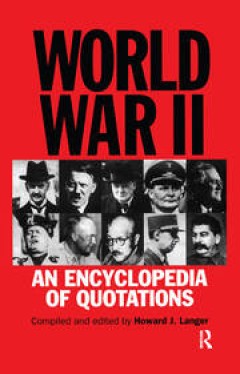
World war II: an encyclopedia of quotations
An all-encompassing book with more than a thousand quotations, this work breathes life into an era unprecedented in world history. It looks at World War II in a new way with quotations from speeches, news accounts, memoirs, and interviews. Represented, too, are captured documents and material from Ultra and Magic, which broke the German and Japanese secret codes. All major political and militar…
- Edition
- 1st Edition
- ISBN/ISSN
- 9781315062655
- Collation
- xviii, 438 p. : ill.
- Series Title
- -
- Call Number
- 940.5303 LAN w
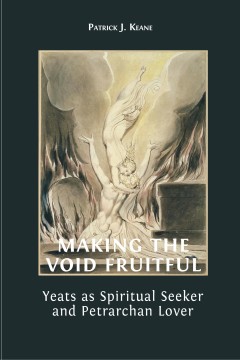
Making the void fruitful : yeats as spiritual seeker and petrarchan lover
Shedding fresh light on the life and work of William Butler Yeats—widely acclaimed as the major English-language poet of the twentieth century—this new study by leading scholar Patrick J. Keane questions established understandings of the Irish poet’s long fascination with the occult: a fixation that repelled literary contemporaries T.S. Eliot and W.H. Auden, but which enhanced Yeats’s v…
- Edition
- -
- ISBN/ISSN
- 9781800643222
- Collation
- viii, 2p. ; ill.
- Series Title
- -
- Call Number
- 821.8 KEA m
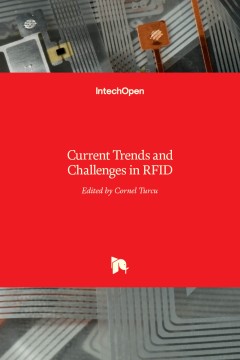
Current trends and challenges in RFID
With the increased adoption of RFID (Radio Frequency Identification) across multiple industries, new research opportunities have arisen among many academic and engineering communities who are currently interested in maximizing the practice potential of this technology and in minimizing all its potential risks. Aiming at providing an outstanding survey of recent advances in RFID technology, this…
- Edition
- -
- ISBN/ISSN
- 9789535160212
- Collation
- xv, 506p ; ill.
- Series Title
- -
- Call Number
- TP391.45 CUR t
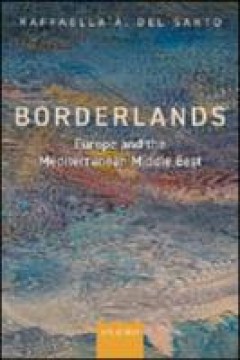
Borderlands : Europe and The Mediterranean Middle East
The book proposes a profound rethink of the complex relationship between Europe—defined here as the European Union and its members—and the states of the Mediterranean Middle East and North Africa (MENA), Europe’s ‘southern neighbours’. These relations are examined through a borderlands prism that conceives of this interaction as one between an empire of sorts that seeks to export its …
- Edition
- -
- ISBN/ISSN
- 9780198833550
- Collation
- 205 p : ill.
- Series Title
- -
- Call Number
- 327.401822
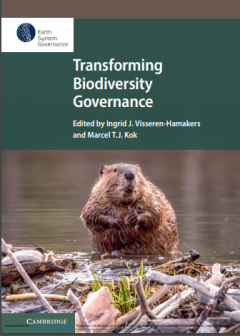
Transforming Biodiversity Governance
Over fifty years of global conservation has failed to bend the curve of biodiversity loss, so we need to transform the ways we govern biodiversity. The UN Convention on Biological Diversity aims to develop and implement a transformative framework for the coming decades. However, the question of what transformative biodiversity governance entails and how it can be implemented is complex. This bo…
- Edition
- -
- ISBN/ISSN
- 9781108856348
- Collation
- xviii, 390p,: ill
- Series Title
- -
- Call Number
- 346.04695 ING
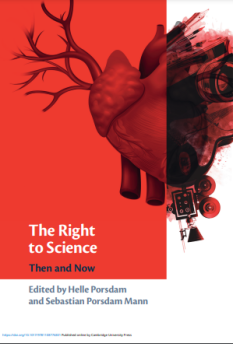
The Right to Science
That everyone has a human right to enjoy the benefits of the progress of science and its applications comes as a surprise to many. Nevertheless, this right is pertinent to numerous issues at the intersection of science and society: open access; 'dual use' science; access to ownership and dissemination of data, knowledge, methods and the affordances and applications thereof; as well as the role …
- Edition
- -
- ISBN/ISSN
- 9781108776301
- Collation
- xi, 324p,: ill
- Series Title
- -
- Call Number
- 342.0853
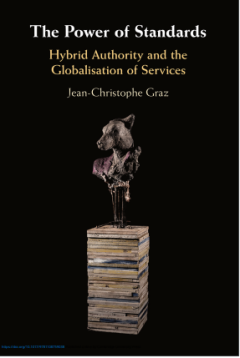
The Power of Standards
Standards often remain unseen, yet they play a fundamental part in the organisation of contemporary capitalism and society at large. What form of power do they epitomise? Why have they become so prominent? Are they set to be as important for the globalisation of services as for manufactured goods? Graz draws on international political economy and cognate fields to present strong theoretical arg…
- Edition
- -
- ISBN/ISSN
- 9781108759038
- Collation
- vii, 270p : ill
- Series Title
- -
- Call Number
- 658.562 JEA
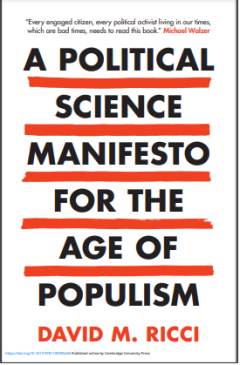
A Political Science Manifesto for the Age of Populism
Populism and authoritarian-populist parties have surged in the 21st century. In the United States, Donald Trump appears to have become the poster president for the surge. David M. Ricci, in this call to arms, thinks Trump is symptomatic of the changes that have caused a crisis among Americans - namely, mass economic and creative destruction: automation, outsourcing, deindustrialization, globali…
- Edition
- -
- ISBN/ISSN
- 9781108785440
- Collation
- x, 258p: ill,
- Series Title
- -
- Call Number
- 320.473 DAV
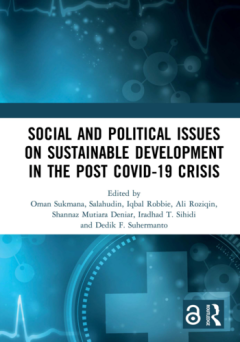
Social and political issues on sustainable development in the post covid-19 c…
As a threat, a pandemic has indirect implications for social, economic and political conditions both at domestic and international levels. Thus, collective and comprehensive efforts are needed in responding to and preventing the expansion of infections caused by the virus, including Covid-19. This international conference provides the discourse on social, economic as well as political issues re…
- Edition
- -
- ISBN/ISSN
- 9781003263586
- Collation
- xiv, 367 p. : ill
- Series Title
- -
- Call Number
- 338.9598 SUK s
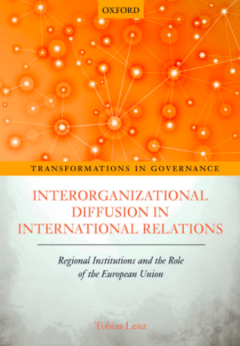
Interorganizational diffusion in international relations : regional instituti…
How and under what conditions does the European Union (EU) shape processes of institution building in other regional organizations? Interorganizational Diffusion in International Relations: Regional Institutions and the Role of the European Union develops and tests a theory of interorganizational diffusion in international relations that explains how successful pioneer organizations shape insti…
- Edition
- 1
- ISBN/ISSN
- 9780198823827
- Collation
- 255p
- Series Title
- -
- Call Number
- 327.4 LEN i
 Computer Science, Information & General Works
Computer Science, Information & General Works  Philosophy & Psychology
Philosophy & Psychology  Religion
Religion  Social Sciences
Social Sciences  Language
Language  Pure Science
Pure Science  Applied Sciences
Applied Sciences  Art & Recreation
Art & Recreation  Literature
Literature  History & Geography
History & Geography